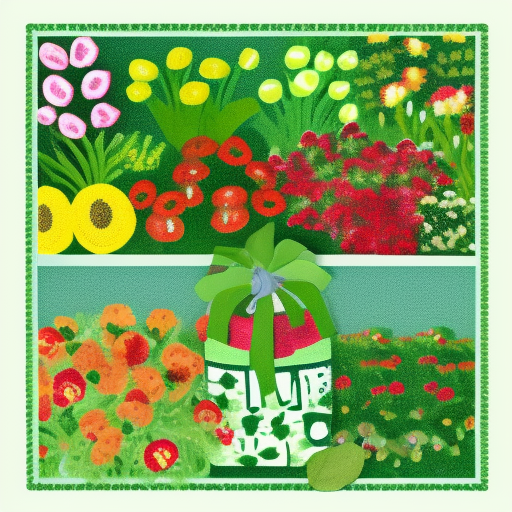
Garden Fresh Delight: The Joy of Growing Your Own Produce
Introduction
Gardening has always been a popular hobby for many people. It not only provides a relaxing and therapeutic activity but also allows you to grow your own fresh produce. There is nothing quite like the taste of vegetables and fruits that have been freshly picked from your own garden. In this article, we will explore the benefits of growing your own produce and some tips on how to get started.
The Benefits of Growing Your Own Produce
Freshness
The most significant advantage of growing your own produce is the freshness factor. Vegetables and fruits that are purchased from the grocery store may have been sitting on shelves or in trucks for days or even weeks before they reach your plate. However, when you grow your own produce, you can pick them at the peak of ripeness, ensuring maximum freshness and flavor.
Nutritional Value
Another benefit of growing your own produce is the nutritional value. Vegetables and fruits that are picked at their peak contain more nutrients than those that have been picked prematurely and transported long distances. Additionally, you have control over the types of fertilizers and pesticides used in your garden, ensuring that your produce is free from harmful chemicals.
Cost Savings
Growing your own produce can also save you money in the long run. While there may be an initial investment in tools, seeds, and soil, the cost of purchasing fresh produce from the grocery store can add up quickly. By growing your own food, you can reduce your grocery bill and have the satisfaction of knowing exactly where your food came from.
Getting Started
Choosing a Location
The first step in growing your own produce is choosing a location for your garden. Ideally, you want an area that receives plenty of sunlight and has good drainage. If you do not have a yard or outdoor space, consider container gardening or using raised beds.
Selecting Your Plants
When selecting plants for your garden, consider your climate and the growing season. Some plants thrive in cooler temperatures, while others require warmer weather. Additionally, consider the space you have available and choose plants that will fit accordingly. Popular vegetables for beginner gardeners include tomatoes, cucumbers, and lettuce.
Preparing Your Soil
Before planting, it is essential to prepare your soil. This may include adding compost or other organic matter to improve soil quality. You may also need to test your soil pH to ensure that it is within the appropriate range for the plants you are growing.
Maintaining Your Garden
Once your garden is planted, it is essential to maintain it properly. This may include watering, fertilizing, and weeding regularly. Additionally, be on the lookout for pests and diseases that may harm your plants.
Conclusion
Growing your own produce can be a rewarding and fulfilling experience. Not only does it provide fresh and nutritious food for you and your family, but it also allows you to connect with nature and enjoy the outdoors. By following these tips, you can start your own garden and experience the joy of garden fresh delight.